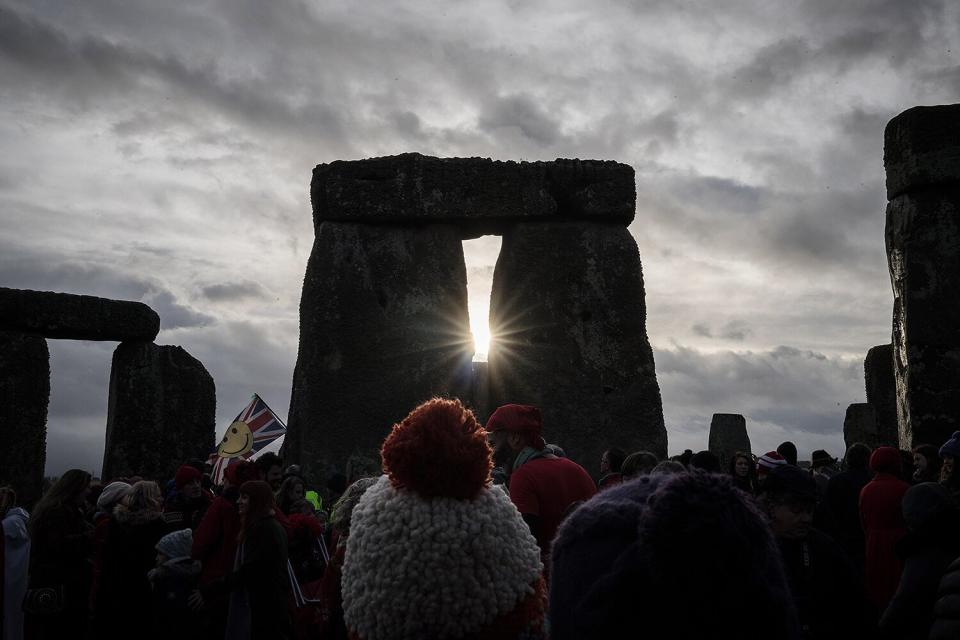Everything to Know About Daylight Saving 2023

It's almost time to spring ahead!
Daylight saving time in the United States annually begins on the second Sunday in March when clocks are set forward by one hour. (Yes, this is the one when we get an extra hour of sunshine in comparison to the winter seasons.)
While the increased daylight is surely a reason to get excited, those who favor their sleep might be feeling the opposite. Why? Because the start of daylight saving involves adjusting the clocks up one hour, resulting in one hour less of sleep.
But don't fret! The added sunlight at the end of the day is sure likely to help beat that end-of-winter doldrums. Just be sure to set any clocks that aren't on a smart device ahead one hour before heading to bed Saturday night.
RELATED: Denny's Is Giving Away Free Coffee for Daylight Savings to Help with the Lost Hour of Sleep
Despite the practice of daylight saving's century-long history in U.S., (dating back to 1908 when it was first observed), the biannual clock-turning ritual may be a thing of the past. Congress has debated for decades whether or not to keep the tradition — and are continuing to discuss today.
"This ritual of changing time twice a year is stupid. Locking the clock has overwhelming bipartisan and popular support," U.S. Sen. Marco Rubio, R-Fla. said after reintroducing the Sunshine Protection Act on March 7, 2023.
Florida isn't the only state that has pushed to permanently adopt daylight saving time. In fact, other states have already chosen to abolish the practice and stay on standard time during the year.
Here's everything to know about daylight saving time 2023, including the states that follow it and whether or not this will be the last year.
When did daylight saving time begin?

Daylight saving time may not be the most thrilling day on your calendar, but it does have a fascinating history.
It was first enacted by the federal government as a way to save coal during World War I in the spring of 1918 and was only meant to exist during wartime. The practice was technically ended later that same year, but many regions continued to follow it until eventually, the government put the measure back in place in 1966 through the Uniform Time Act.
The next major change came in 2007 when the Energy Policy Act of 2005 "extended the length of DST in the interest of reducing energy consumption," according to the National Institute of Standards and Technology.
As a result, daylight saving time was expanded to encompass about 65% of the year, beginning at 2:00 a.m. on the second Sunday of March and ending on the first Sunday of November.
RELATED: Everything to Know About the Full Moons in 2023
Who is in charge of daylight saving time?
In 1966, the Department of Transportation (DOT) was assigned the responsibility of daylight saving time and all time zones in the U.S. because "time standards are important for many modes of transportation," according to the department's website.
Do all states participate in daylight saving time?

Matt Cardy/Getty
States have the final say on if they participate in daylight saving time. Hawaii and most of Arizona do not — the latter because it receives so much sunlight already. The islands of American Samoa, Guam, Puerto Rico and the Virgin Islands abstain as well.
What are the benefits of daylight saving time?
According to the DOT, daylight saving time is observed because it reportedly saves energy, cuts down on traffic accidents, and reduces crime.
Research varies as to whether or not the practice actually satisfies its reasonings — air conditioning units have shown to cost more energy in some areas — but at the very least, the extra hour encourages more time outside. And whether you spend that working out or sipping cocktails on the patio, a little more sunshine is never a bad thing.
RELATED: What to Know About March's Worm Moon and What It Means for Your Zodiac Sign
When is daylight saving time 2023?
Daylight saving time occurs March 12, 2023 at 2:00 a.m. on Sunday morning.
Will this year be the last time daylight saving is observed in the United States?

Getty
For years, U.S. Congress has debated whether or not to keep the bi-annual clock changes or end the nation's practice for good. In 1985, Sen. Edward J. Markey (D-Mass.) passed legislation extending daylight saving time and again in 2005.
"Americans want more sunshine in the chilly, winter months, and Congress can deliver that to them," he said at the time. Now, the lawmaker, dubbed "Sun King," is speaking up once more, vowing that this can be the year that Congress ends the time-changing ritual.
He's one of the sponsors of a bipartisan bill that would allow states to lock in permanent daylight saving time, enabling them to "spring forward" one final time and never "fall back" again. The bill is known as the Sunshine Protection Act, spearheaded by the aforementioned Senator Rubio of Massachusetts.
"My opinion is, honestly, the sun doesn't have any enemies," Markey said per The Washington Post, adding that moving the clocks forward permanently would enable hundreds of millions of people to enjoy more sunshine later in the day for various activities. The Senate passed the bill in March, but died in the House amid safety and health concerns.
However, 19 states have enacted legislation or passed resolutions to provide for year-round daylight saving time in the last five years (if Congress were to allow such a change). "Because federal law does not currently allow full-time DST, Congress would have to act before states could adopt changes," according to the National Conference of State Legislatures.

 Yahoo Finance
Yahoo Finance 